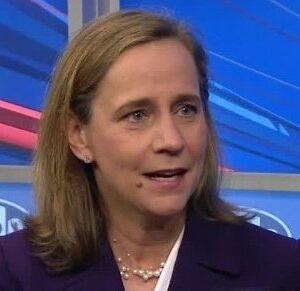When WMUR asked Republican candidate for governor Kelly Ayotte about her tax policy, she said, “We’re not going to increase business taxes, we are not going to increase taxes on individuals.”
Her Democratic opponent Joyce Craig’s answer?
“I have no intention of raising taxes for our small businesses.”
And that, critics say, is a loophole big enough to drive a tax hike through.
“She may be trying to give herself wiggle room to tax and spend, but she is actually sounding the alarm for every small business in New Hampshire,” said Republican consultant and Nashua native Matthew Bartlett. “It is hard for a business to plan and hire workers when the only thing preventing higher taxes is a carefully crafted statement of ‘intent.'”
In fact, Craig has made no secret of the fact she supports a tax hike. In particular, Craig wants to bring back New Hampshire’s income tax on interest and dividend (I&D) revenue, which will be phased out by the end of the year thanks to legislation from Republican Gov. Chris Sununu and the GOP-controlled legislature.
“I think it’s wrong that millionaires are getting a massive tax break right now while the costs are coming onto the backs of our hard-working families,” Craig told The Keene Sentinel when asked if the I&D income tax should be reinstated. “That’s taking $160 million a year away. It’s giveaways for the most wealthy in our state.”
And during the Democratic gubernatorial primary debate at New England College earlier this month, Craig pledged, “I will work with the legislature to bring that [I&D income tax] back.”
Ayotte opposes any income tax in New Hampshire, including on I&D income, and she says it’s a key difference between the two candidates.
“Joyce Craig has never seen a tax that she didn’t like. Instead of working to reduce our taxes and protect our New Hampshire Advantage, Joyce would rather take us down the Taxachusetts path. New Hampshire can’t afford Joyce Craig as governor,” Ayotte told NHJournal.
Craig declined to respond to requests for comment.
Craig claims taking interest and dividends income means taxing millionaires. But according to 2021 data from the New Hampshire Department of Revenue Administration, of the 71,259 tax returns reporting I&D income, 61 percent paid $500 or less in taxes on it. Given the five percent tax rate at the time, that means they had $10,000 or less in I&D revenue.
About a third of those filers paid nothing, meaning their income fell below the exemption level ($2,400 for an individual, or $4,800 for a married couple.)
And while Craig says she won’t raise taxes on small businesses, reinstating the I&D tax would do just that, critics say. Just over one thousand of the filings were from partnerships — many of them small businesses — that paid $1.6 million in I&D taxes in 2021.
“The Interest & Dividends tax is an income tax,” said Drew Cline, president of the Josiah Bartlett Center for Public Policy. “On January 1, it disappears after 101 years. That’s a tremendous accomplishment, made possible by surging business tax revenues generated over the last decade by the state’s strong economy. It’s remarkable that, after New Hampshire finally kills a century-old income tax, any candidate for governor would campaign on bringing it back. It’s dead. Let it stay dead. No Granite Stater wants to be attacked by a zombie income tax.”
Craig’s tax issues don’t end with the income and dividends tax. Her bona fides as an opponent of business taxes have been in doubt since July when she stumbled over a question from WMUR’s Adam Sexton on whether she would support raising the business taxes Republicans cut during the Sununu administration.
Asked if she would be open to raising business taxes, Craig hedged. “We’ll make that decision later on.” The backlash was so severe, she was forced to release a statement backtracking on her answer.
“I believe that we must lower costs for New Hampshire families, which is why I do not support a sales or income tax and would not raise taxes on New Hampshire’s small businesses,” Craig said in a hastily-issued follow-up statement.
Craig’s emphasis on the phrase “small business” in her public statements has also caught the attention of tax hike opponents. Granite State Democrats in the legislature have repeatedly tried to reverse cuts in New Hampshire’s business taxes, in particular the Business Profits Tax. Opponents of cutting the BPT say the benefits largely flow to big, out-of-state businesses. Does Craig’s repeated emphasis on avoiding tax increases for “small business” mean she would be open to raising the BPT?
Again, the Craig campaign would not respond to questions from NHJournal.
Sununu says he knows the answer.
“Make no mistake about it, as governor, Joyce Craig will raise taxes across the board on New Hampshire families and small businesses. The proof is in her record. As mayor, she blew through a tax cap and tried to raise taxes six times. She’s supported a statewide income tax. She supported a sales tax. It’s a record of fiscal mismanagement that New Hampshire families can’t afford,” Sununu said.





